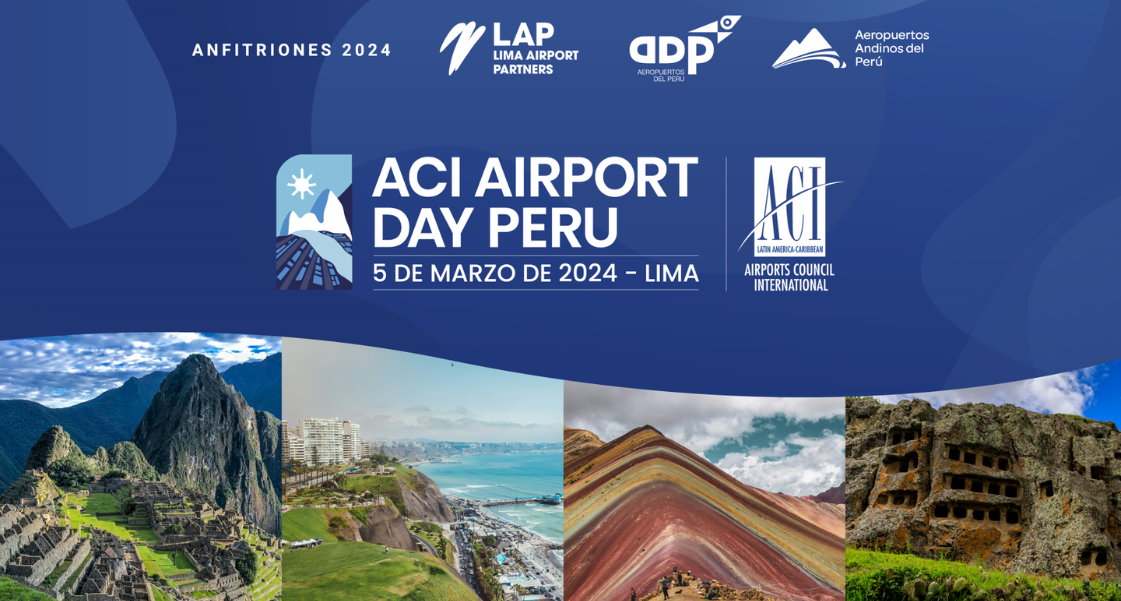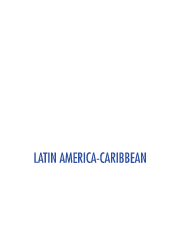Medios
INICIO
MEDIOS

- Around 300 attendees, including the main players of the airport community in the region, industry executives in the country, national and international civil aviation authorities and senior public sector officials gathered at the main event of the airport industry organized by the Airports Council International for Latin America and the Caribbean (ACI-LAC).
- Among the topics discussed were the creation of urban airport zones, the liberalization of air traffic services, deregulation for the execution of key projects, regional and local sustainable development, the incorporation of new technologies and the main challenges of the sector in Peru to boost connectivity and tourism.
Lima, March 06, 2024. For the first time, Peru hosted the sixth edition of ACI Airport Day, an internationally representative event for the airport and aeronautical industry, organized by the Airports Council International (ACI) and hosted by the private airport operators: Lima Airport Partners (LAP), Aeropuertos del Perú (ADP) and Aeropuertos Andinos del Perú (AAP). The event was attended by the Minister of Transport and Communications, Raul Perez Reyes, the Vice Minister of Foreign Trade and Tourism, Madeleine Burns, and other top national and international leaders of the companies that make up the airport ecosystem.
"As LAP we are very pleased to have successfully completed this first ACI Airport Day in Peru, an event that has brought together the leading exponents of the airport industry in the region and the Peruvian government authorities. This event has meant for the airport ecosystem in Peru, an important platform for discussion, prioritization of common issues and open possibilities for collaboration, considering the different scenarios and problems of the airport sector, not only in Peru, but also in other countries in the region," said Juan José Salmón, general manager of Lima Airport Partners.
As part of the agenda, panels and conferences were held such as: the panel "Airports as engines of local and regional development", the conference "Peru Tourism Strategy", the panel "Empowering destinations: strategic collaboration for the successful development of routes", the panel "Liberalization of Air Transport: boosting development in Latin America", the conference "Liberalization of ATC services, experience in Europe", the panel "Airport City: creation of airport urban areas", among others.
At another point, Evans Avendaño, General Manager of Aeropuertos del Perú, pointed out the need to accelerate the approval process of files and addenda, which will provide the necessary tools to the concessionaire for efficient risk management, in order to speed up the execution of projects that will help to strengthen the airport infrastructure in the interior of the country. Provincial airports must grow at the same pace as Jorge Chavez in order to be able to respond to the demand of the coming years. "We are talking about projects with an investment of more than US$ 4.8 billion for the rehabilitation of runways, expansions and modernization of regional airports under our concession, which will allow us to generate greater regional air connectivity with fruitful results and guarantee a sustained growth of national and international passenger traffic", emphasized Avendaño. He also emphasized the importance of articulating between the public and private sectors in order to move forward with key projects.
"Diversification will come with connectivity. We must focus as an organization on traffic development and basically become an investment engine, an investment platform not only for Jorge Chavez but for Peru. From LAP, we have created the Airport City concept, promoted through third party investment, seeing the market potential. This vision allows us to reaffirm our commitment in the sector, working together with all the actors for the development of the country", said Norbert Onkelbach, LAP's Central Commercial Manager.
Rafael Echevarne, general director of ACI-LAC, said that among the main topics discussed by the authorities and industry experts were connectivity, liberalization, deregulation and competitiveness of air transport. Also discussed for the first time in the region was the participation of the private sector in the provision of air navigation services and the introduction of new technologies for more efficient air transportation.
Among some of the conclusions highlighted by the invited specialists and panelists were the following:
- The administration of airports in the country and the success stories with the incorporation of the private sector through concessionaires. An example of this is the Public Private Partnerships (PPP) and the modalities through co-financing, a form that has allowed the dynamism and modernization of the sector in recent years.
- Look at aviation as an ecosystem. It is not possible to talk about airlines, the State, associations, civil society or airports in isolation. The only way to develop the sector is through an articulated management among all the actors, which will allow us to face together the existing gaps to ensure connectivity and, as a consequence, the development of the country.
- Latin America as a market to generate traffic and promote competitiveness, but competitiveness really lies in the costs that are passed on to users. In the case of airlines, it is very difficult for them to generate that traffic if there is no competitive price. It is a matter of deregulation and competitiveness of public administrations so that these efficiencies are passed on to the end user.
Finally, LAP's general manager also pointed out the need to free the barriers to continue developing the sector, since there are still bureaucratic barriers that hinder development. "Jorge Chávez Airport grants the State 52% of the gross income, of that amount a significant amount goes to the trust administered by the State. That trust in the 23 years of concession has generated approximately 2,300 million dollars, and that money should be destined for the improvement of regional airports and expropriations. In the future, seeing the growth line of Jorge Chavez, it is probable that in 15 years we will generate almost 4 billion dollars. It is important that the State unblocks the approval processes so that the private sector, with the experience it has, may develop concepts and engineering to the existing needs in a determined time", he pointed out.
The Voice of LATIN AMERICA & CARIBBEAN AIRPORTS


